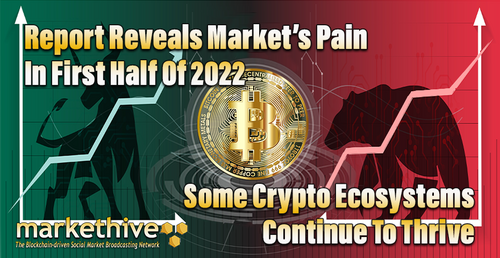

Image Source: Pixabay
NFT utility to remedy ticketing dilemmas? Experts weigh in
The biggest pain points in events ticketing could prove to be a flagship use case of blockchain-based nonfungible tokens, according to industry leaders.
The 2022 Champions League final will have a checkered position in the competition’s history book. Real Madrid emerged victorious over Liverpool inside the Stade de France, but the pandemonium outside the stadium before kick-off highlights the need for innovative solutions to events ticketing.
Counterfeit tickets played a massive role in the chaotic scenes that played out in the French capital in June 2022, as fans broke into the stadium precinct while authorities rebuffed many. French authorities estimated that 35,000 people had arrived at France’s national stadium with fake tickets or none at all, in addition to the 75,000 fans that had legitimate tickets for the grand final.
Black market ticket sales and touting have been part and parcel of the sporting and events world for decades, but the advent of blockchain-powered ticketing looks to be a promising solution. Nonfungible tokens (NFTs) are multi-faceted in that they ensure the credibility of tickets and enable Internet-of-Things (IoT) functionality while also serving as a unique digital collectable to commemorate an event.
The NFL has already tested the waters with NFT ticketing, having distributed around 250,000 NFT tickets after launch in November 2021. Fans that attended the NFL’s Super Bowl LVI were also eligible for commemorative NFT tickets — all at no cost. How that NFT ticket looks and what it incorporates are up to the creators. The NFL’s NFT tickets are minted on the Polygon blockchain and feature different animated visual elements. Read More
You Can Now Earn Bitcoin by Playing Solitaire and Sudoku
Play-to-earn Bitcoin firm ZEBEDEE and blockchain game developer Viker are teaming up to reintroduce three classic games with a crypto twist.
Fans of all-time classic games such as Solitaire and Sudoku can now enjoy the already familiar gameplay with the added benefit of getting rewards in Bitcoin, the world’s largest cryptocurrency by market capitalization.
This became possible thanks to the extended partnership between Bitcoin-centric gaming startup Zebedee and London-based mobile games studio Viker, who joined forces to bring crypto rewards to three popular games—aside from classic card game Solitaire and logic puzzle Sudoku, the list also includes Missing Letters, a Wordle-like game where players have to identify which letter is missing in each word.
"These games are played literally by billions of people, for hundreds of hours over many years. But so far, none of them have been able to earn anything for their time. Why continue that, when we're now in an era where games can reward you with more than just fun?” Dan Beasley, a co-founder of Viker, said in a statement shared with Decrypt. Read More
Ripple Joins Forces With Singaporean Fintech Giant to Improve Cross-Border Payments
Following the agreement with Ripple, FOMO Pay will aim to provide instant cross-border payments in USD and EUR.
The blockchain company – Ripple – teamed up with the Singaporean fintech firm – FOMO Pay, aiming to boost its cross-border treasury flows.
Ripple’s Latest Partnership:
As a digital payment system for monetary transactions, one of Ripple’s goals is to leverage crypto and provide cross-border settlements. Its On-Demand Liquidity (ODL) is meant to enable quick and cost-efficient payments, and several companies across the globe facilitate transactions via this feature.
According to the newest agreement, FOMO Pay will utilize that technology to achieve low-cost and swift cross-border payments in two of the leading fiat currencies: the dollar (USD) and the euro (EUR). Giving more detail was Louis Liu – Founder and CEO of the Singaporean organization:
“As one of the leading payment institutions in Singapore, FOMO Pay aims to provide our clients with more efficient and cost-effective payment modes in different currencies. We are excited to partner with Ripple to leverage On-Demand Liquidity for treasury management, which allows us to achieve affordable and instant settlements in EUR and USD globally.”
For his part, Brooks Entwistle – SVP and Managing Director at Ripple – outlined the Asia Pacific as a region presenting many opportunities. It is an area closely connected to blockchain technology, which is why Ripple is “so excited to launch this crypto-enabled treasury management use case for ODL with innovative customers like FOMO Pay,” he added. Read More
Could Ethereum Be Classified as a Security Following the Merge?
A recent SEC insider trading lawsuit has reignited discussion over which crypto assets could be classified as securities—most notably Ethereum.
A recent SEC investigation into insider trading has revived debates over whether Ethereum could qualify as a security.
Some have argued that ETH passes the Howey test due to the way it was launched and Ethereum's upcoming move to Proof-of-Stake.
As ETH stakers earn revenue from validating blocks on the Ethereum network, there is an argument that ETH investors buy the asset with the expectation of a profit. However, a security classification from the SEC seems unlikely.
Could the SEC have the grounds to classify Ethereum as a security once it completes its “Merge” to Proof-of-Stake? Crypto Briefing explores one of crypto’s most hotly contested issues. Read More

The first half of 2022 was painful for the crypto market. This is mainly because of the events during the second quarter, such as Terra’s collapse and Three Arrows Capital’s insolvency. A recent report produced by the popular crypto price-tracking site Coin Gecko has examined precisely what happened during this chaotic second quarter and how it could affect cryptocurrency in the remaining half of this year.
The following is some background about this report, summarizing what it says in simple terms and what it could mean for the crypto market going forward.
The report begins with a note from Coin Geckos founders where they talked about how crypto lost more than half of its market cap during Q2 and how this was due to a combination of macro factors and Terra’s collapse. The founders also mention Three Arrows Capital and how its insolvency took down crypto platforms exposed to it, like Voyager Digital, and noted the gradual decline in the NFT market.
On a more positive note, the founders point out that many crypto ecosystems continue to thrive, despite the bear market. They note that most of the leverage has been flushed out by the recent crashes and that many crypto companies and projects, including Coin Gecko, continue to operate as usual. Read More
What are Dynamic NFTs? The ‘Living’ Tokens That Change Over Time
Dynamic NFTs, also known as Living NFTs, use smart contracts to change based on external data sources. Here’s how they work.
Non-fungible tokens, or NFTs, are unique digital assets that exist as a permanent record on blockchain. But if you thought that meant they were static and unchanging, think again. There is, in fact, a whole genre of living NFTs. Also referred to as dynamic NFTs, these non-fungible tokens can shift and mutate over time, according to programmable features encoded by their developers.
“A living NFT is all about dynamism—as opposed to a normal profile picture (PFP) project such as CryptoPunks, which remains static,” Alexander Guy, Head of Marketing & Growth at Zerion, told Decrypt. “Living NFTs offer exciting ways for holders to link their behavior and actions on chain—and IRL—with the NFTs they collect.”
So how does a dynamic NFT differ from a regular NFT? In simple terms, a dynamic NFT’s metadata can change based on varying conditions. That can include the passage of time, interactions with other NFTs, or—more commonly—external data, including information drawn from sources that monitor real-world data, like weathervanes or real-time sports scores. Read More
NFT potential is vast and creative possibility is endless, says YellowHeart CEO
Josh Katz said that ticketing is one of the most compelling use cases for NFTs as it can prevent fraud.
While some refuse to adopt nonfungible tokens (NFTs), others are finding ways to realize the potential of NFT technology to solve real-world problems.
In an interview with Cointelegraph, Josh Katz, CEO of NFT marketplace YellowHeart, shared his thoughts on using NFTs in ticketing, what the NFT space will look like in the future and whether NFTs can eventually surpass crypto in popularity.
According to Katz, ticketing is one of the most compelling use cases for nonfungible tokens. Citing the UEFA Champions League incident in Paris where fraudulent tickets caused chaos, the CEO said that NFT tickets are the solution:
“By providing immutable proof of authenticity for every ticket issued, venues and artists have an effective defense against ticket counterfeiting.”
When asked about his thoughts on what the NFT industry will look like in the years to come, Katz said that NFTs will be involved in many day-to-day activities in various industries. He said that this will happen when people realize that NFTs can increase engagement and cut out intermediaries:
“The growth potential in NFT uptake and implementation is vast, and the creative possibilities tied to this are endless.” Read More
Solana said to be ‘more decentralized than people think,’ but there’s more
Unstoppable Finance argued that Solana’s validator count and Nakamoto coefficient are higher than other blockchains, making it more decentralized.
Solana-based decentralized finance (DeFi) firm Unstoppable Finance has argued that Solana is more decentralized than people make it out to be. However, there’s another side that believes that the blockchain platform is actually more centralized.
In a blog post, the DeFi firm lays out its arguments, citing the blockchain network’s active validator count, Nakamoto coefficient and support for validator hardware, which is often argued to be expensive, as reasons for the network’s decentralization.
According to the post, Solana’s validator count is much higher than most other chains, excluding Ethereum. Additionally, Unstoppable Finance points out that Solana’s Nakamoto coefficient, a metric that measures the distribution of staked tokens and decentralization, is much higher than protocols like Cosmos and Near Protocol.
Regarding the criticisms that Solana’s validator hardware is expensive, Unstoppable Finance argues that Solana has already created a server rental program that deals with the issue. Despite the arguments in favour of Solana’s decentralization, some community members cannot be convinced that the platform is decentralized. Read More
What is the Merge? What You Need to Know About the Transition to Ethereum 2.0
The Merge is one of the hottest topics among the cryptocurrency community as of late. Here’s everything you need to know about it and when will Ethereum 2.0 come to life.
In what’s likely to be the most highly-anticipated event within the cryptocurrency community in 2022, Ethereum’s mainnet is set to merge with the Beacon Chain’s proof-of-stake system.
Called “The Merge,” it will mark the very end of the proof-of-work Ethereum we know today and give birth to Ethereum 2.0 – the version that will be based on a proof-of-stake consensus algorithm.
We have compiled a very detailed guide on everything you need to know about Ethereum 2.0 that you can check out here. The following focuses on the details surrounding the Merge, some brief technicalities, timelines, and also debunking some of the most coming misconceptions. Read More
Disclaimer: These articles are provided for informational purposes only. They are not offered or intended to be used as legal, tax, investment, financial, or any other advice.